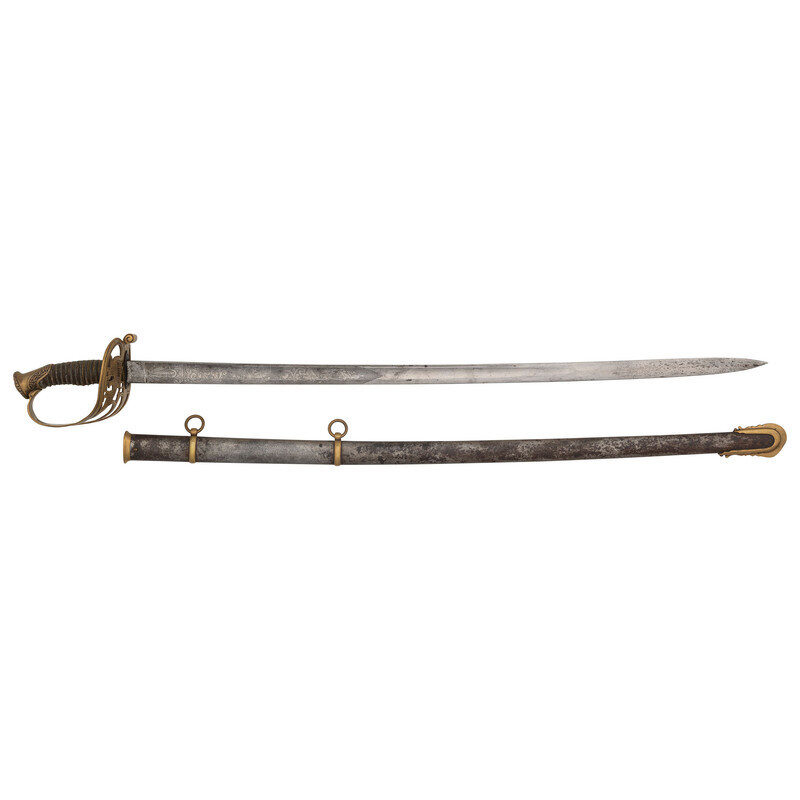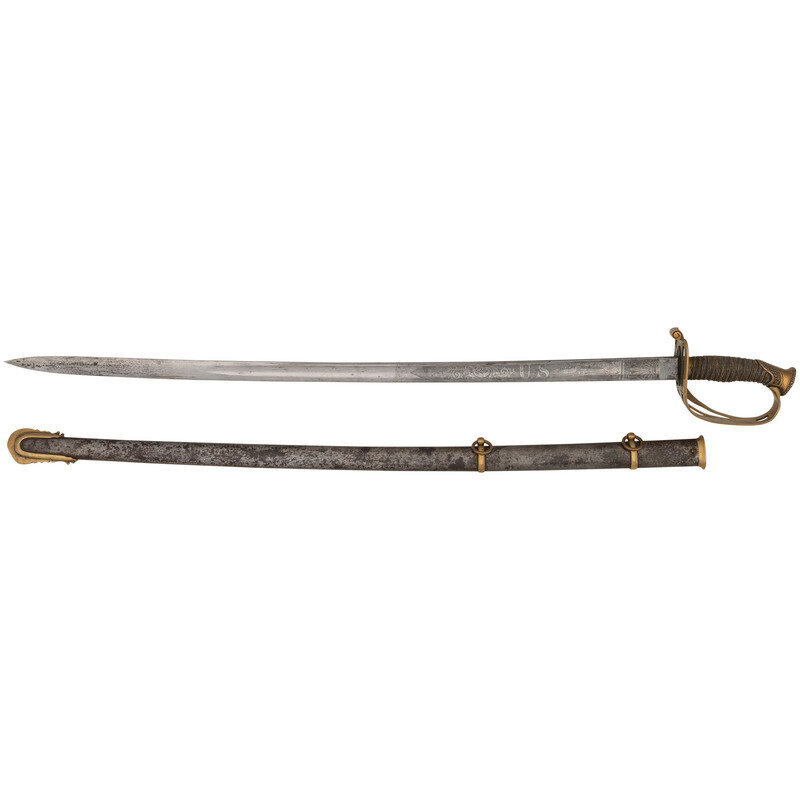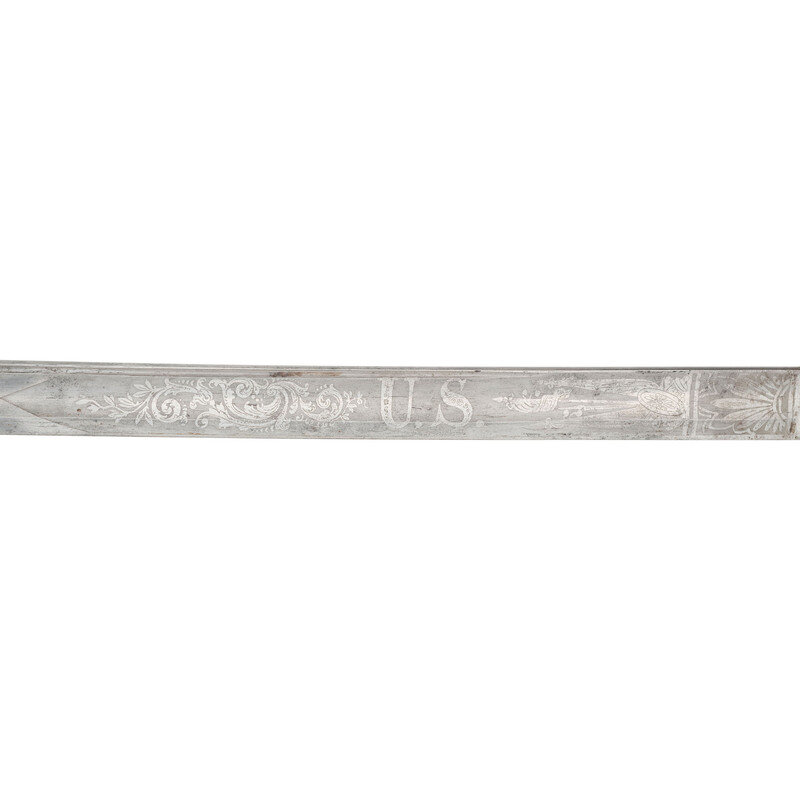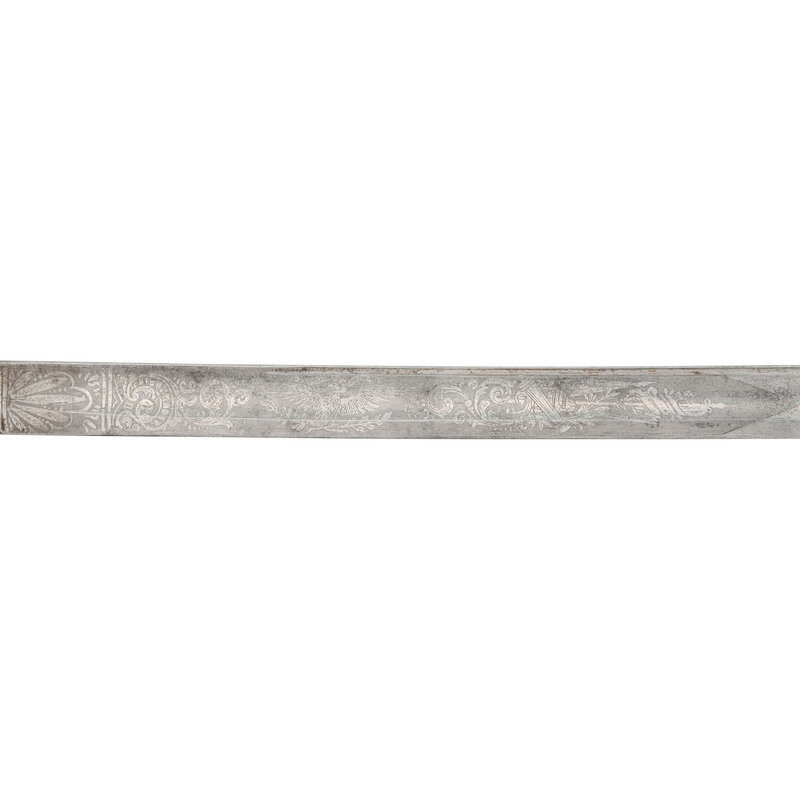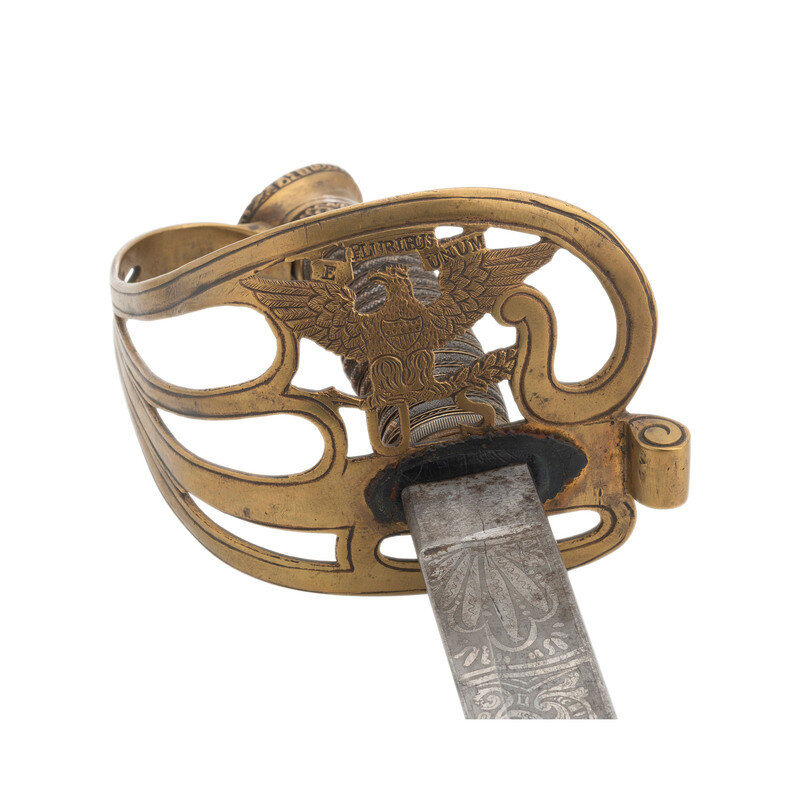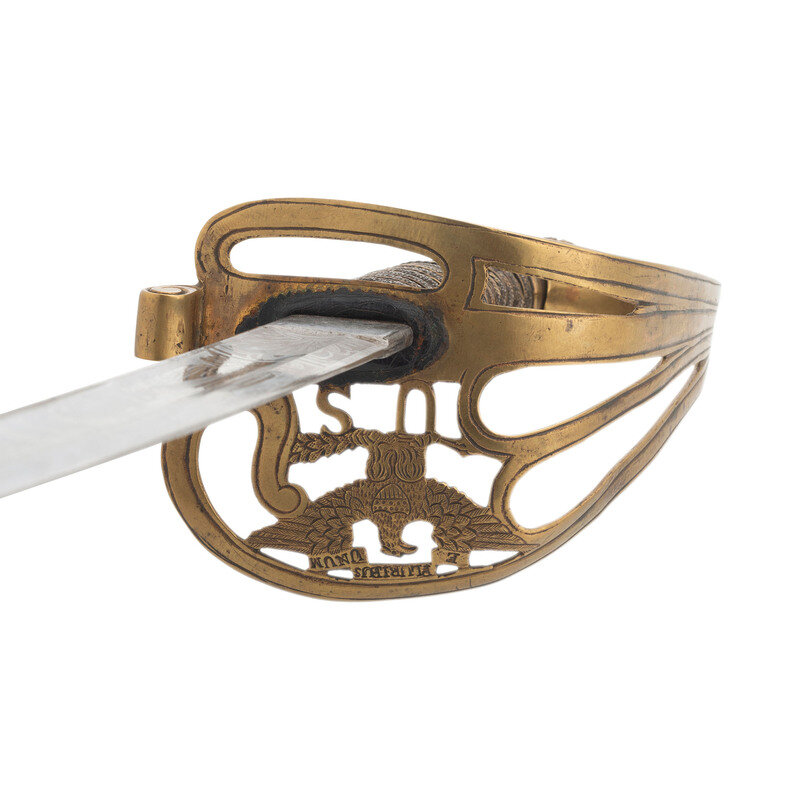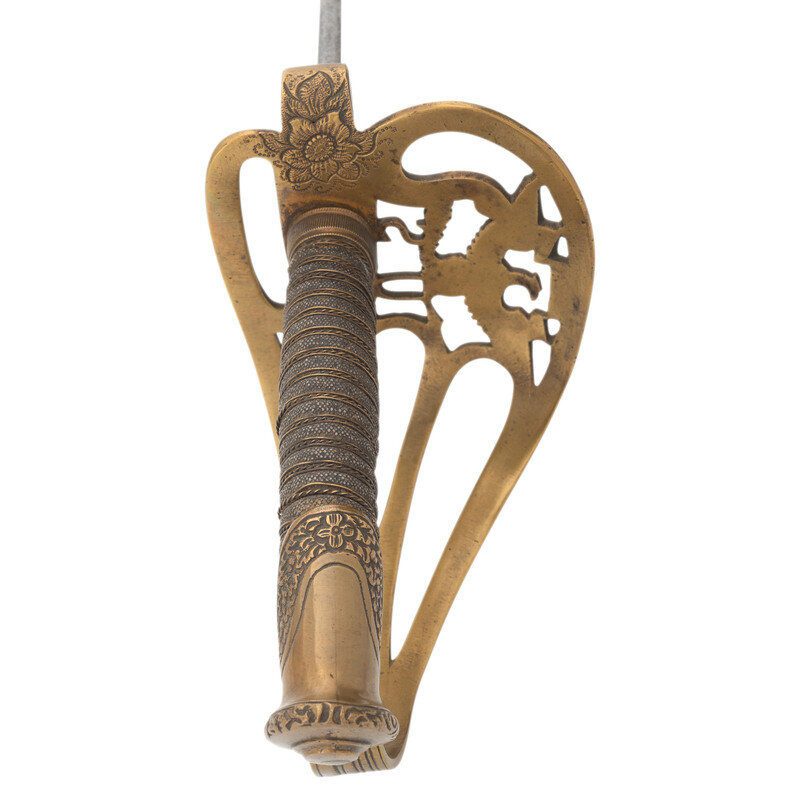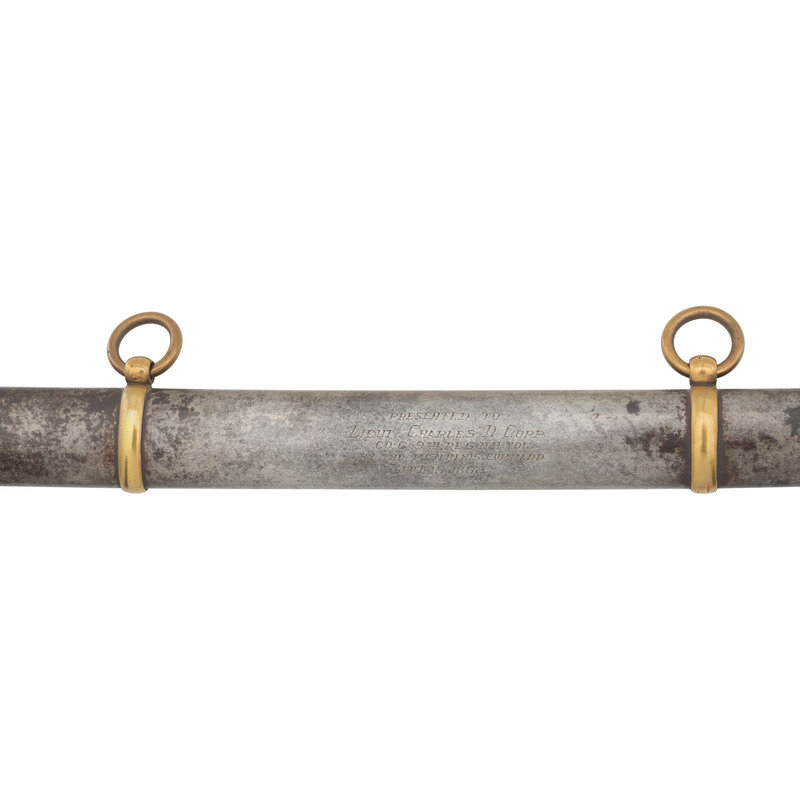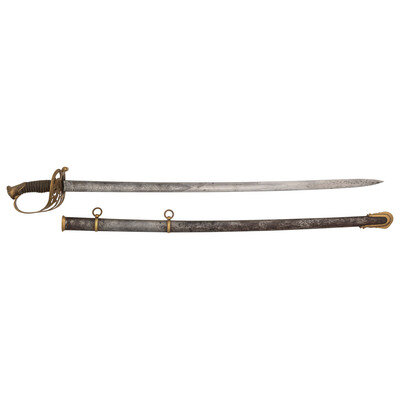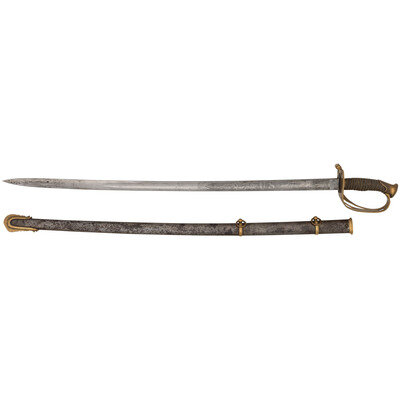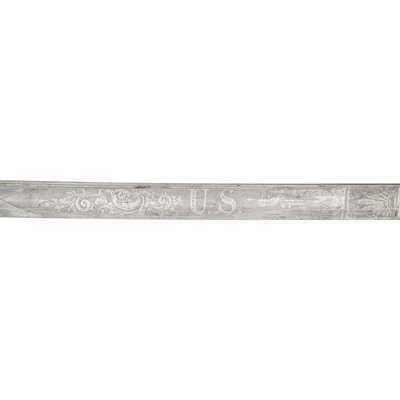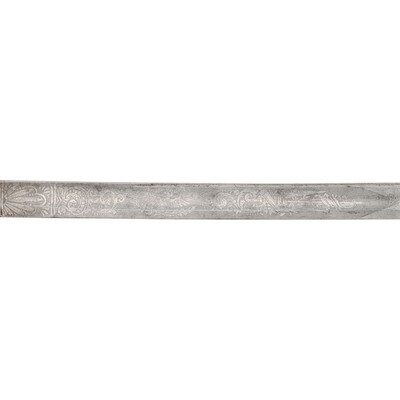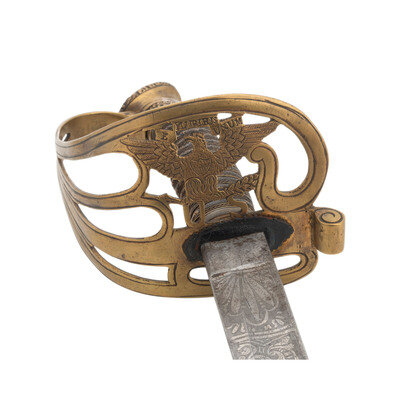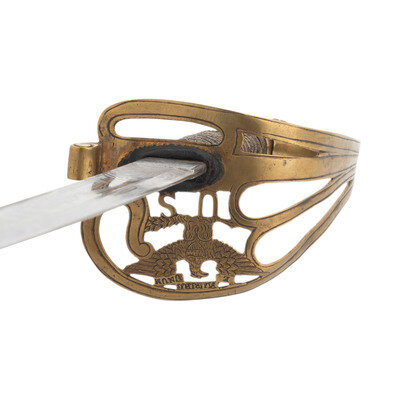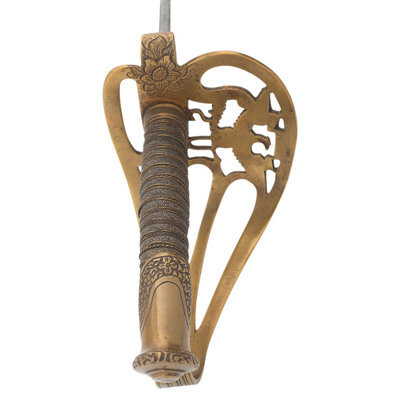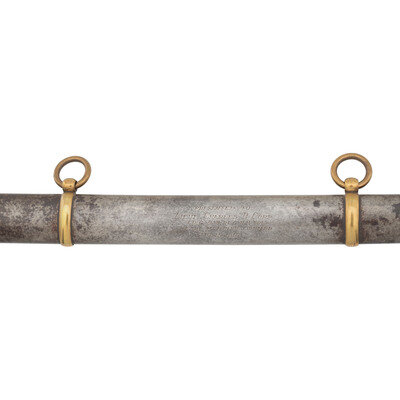Condition Report
Contact Information
Auction Specialists
Lot 24
Lot Description
32" very slightly curved single-edged spear point blade with a 21.5" stopped median fuller and a 14.5" secondary fuller along the spine, 1.1" wide at the ricasso. Overall length is 37.5" with a 5.5" hilt with a pierced brass four branch guard with a {Spread-Winged American Eagle} over US of the style often referred to as a "Peterson 75". Interior upper face of the guard engraved with a floral motif below and behind the quillon. Grooved wood grip with shagreen covering and fifteen wraps of multi-strand wire with the center wire twisted and the flanking wires plain. Blade etched with floral, patriotic and marital themes with a {Spread-Winged Eagle} with a ribbon reading E Pluribus Unum in its beak being central to the obverse panel and the letters U.S. being central to the reverse. Unmarked, the sword may be by Clauberg, who made a brass guard version of the British 1827 officer's sword, but is interesting in that the grip is not the traditional English style by more typical of an American 1850 officer's sword. The sword is accompanied by a brass mounted plain steel scabbard which is engraved between the suspension mounts: PRESENTED TO / LIEUT CHARLES D COPP / CO. C 9TH REG. N.H. VOL. / THE MEN IN HIS COMMAND / SEPT. 15, 1862.
Charles Dearborn Copp from Nashua, NH was commissioned into Company C of the 9th New Hampshire Infantry as a 2nd lieutenant on August 15, 1862. The regiment was present at most of the major engagements that the Army of the Potomac fought in from the fall of 1862 and from the summer of 1864 through the end of the war, including South Mountain, Antietam and Fredericksburg in 1862, the Overland Campaign of 1864 which included the Wilderness, Spotsylvania and Cold Harbor, followed by the Siege of Petersburg. The regiment spent 1863 in the western theater where it reinforced Grant's Army of the Tennessee primarily during the Siege of Vicksburg, meaning that the regiment was not present in the East for Chancellorsville and Gettysburg. It was during the desperate fighting at Fredericksburg on December 13, 1862 that Copp's actions earned him the Congressional Medal of Honor for conspicuous bravery in battle. The citation reads: "Seized the regimental colors, the color bearer having been shot down, and, waving them, rallied the regiment under heavy fire." Copp would be promoted to 1st lieutenant on January 1, 1863 and become the company commander on with his promotion to captain on July 28, 1864. He was mustered out of service on June 10, 1865 in Alexandria, VA and was active in the GAR after the war. Copp died on November 2, 1912 in Clinton, MA.
The sword is accompanied by a large binder of research material including copies of Copp's service records, the Medal of Honor citation, pictures, personal and regimental history, etc.
From the Collection of George Oldenbourg
